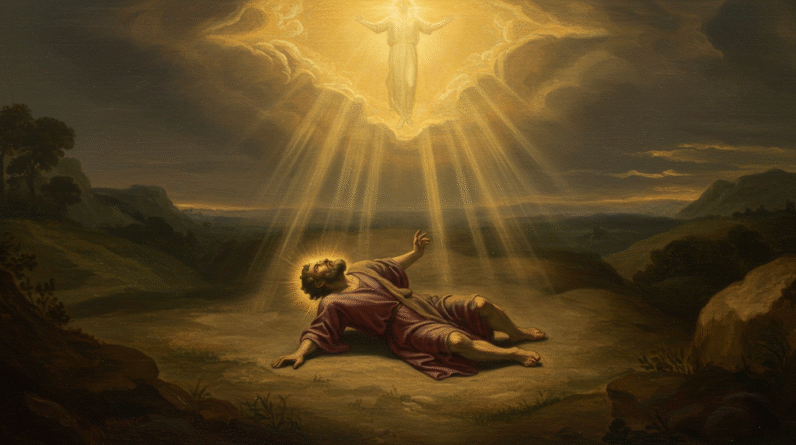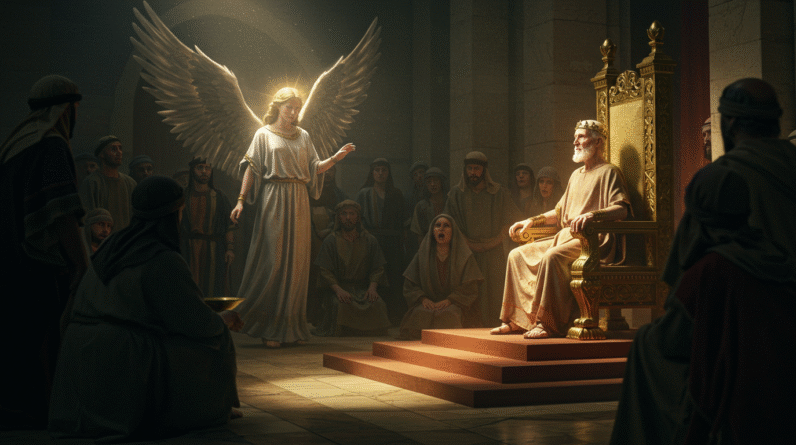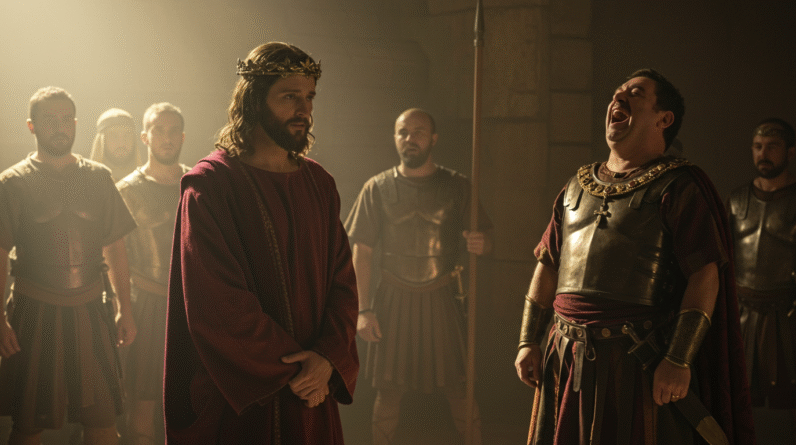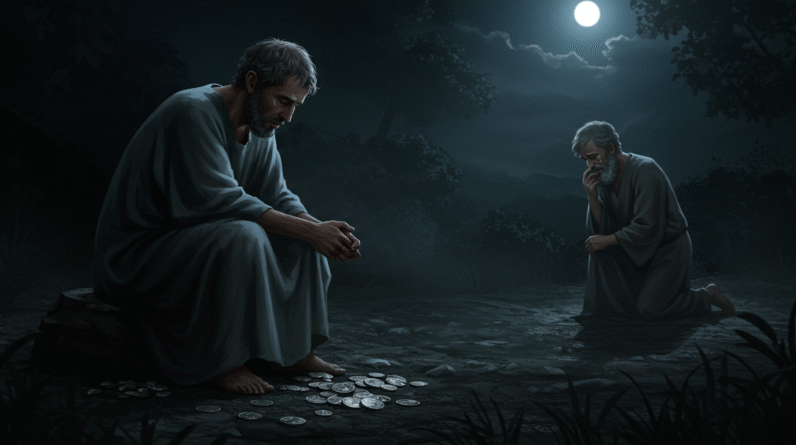Delve into the intriguing narrative of Pharaoh’s hardened heart in Exodus 7, exploring themes of divine intervention and human stubbornness. Reflect on this story’s modern relevance.
Understanding Pharaoh’s Hardened Heart in Exodus 7: A Fresh Perspective
Introduction
In the tapestry of biblical narratives, few stories capture the imagination and intrigue of readers like the tale of Pharaoh’s hardened heart in Exodus 7. Whether you’re a seasoned theologian or someone just beginning to explore the Bible, the story prompts questions about free will, divine intervention, and the complexities of the human heart. Today, we’re delving into this ancient narrative with a fresh perspective—one that connects these centuries-old events to our modern lives.
📖 Key Verse or Passage
Let’s anchor our exploration in the scriptural text itself. The core reference for Pharaoh’s hardened heart can be found in Exodus 7:3. This passage reads: “But I will harden Pharaoh’s heart, and though I multiply my signs and wonders in Egypt, he will not listen to you.”
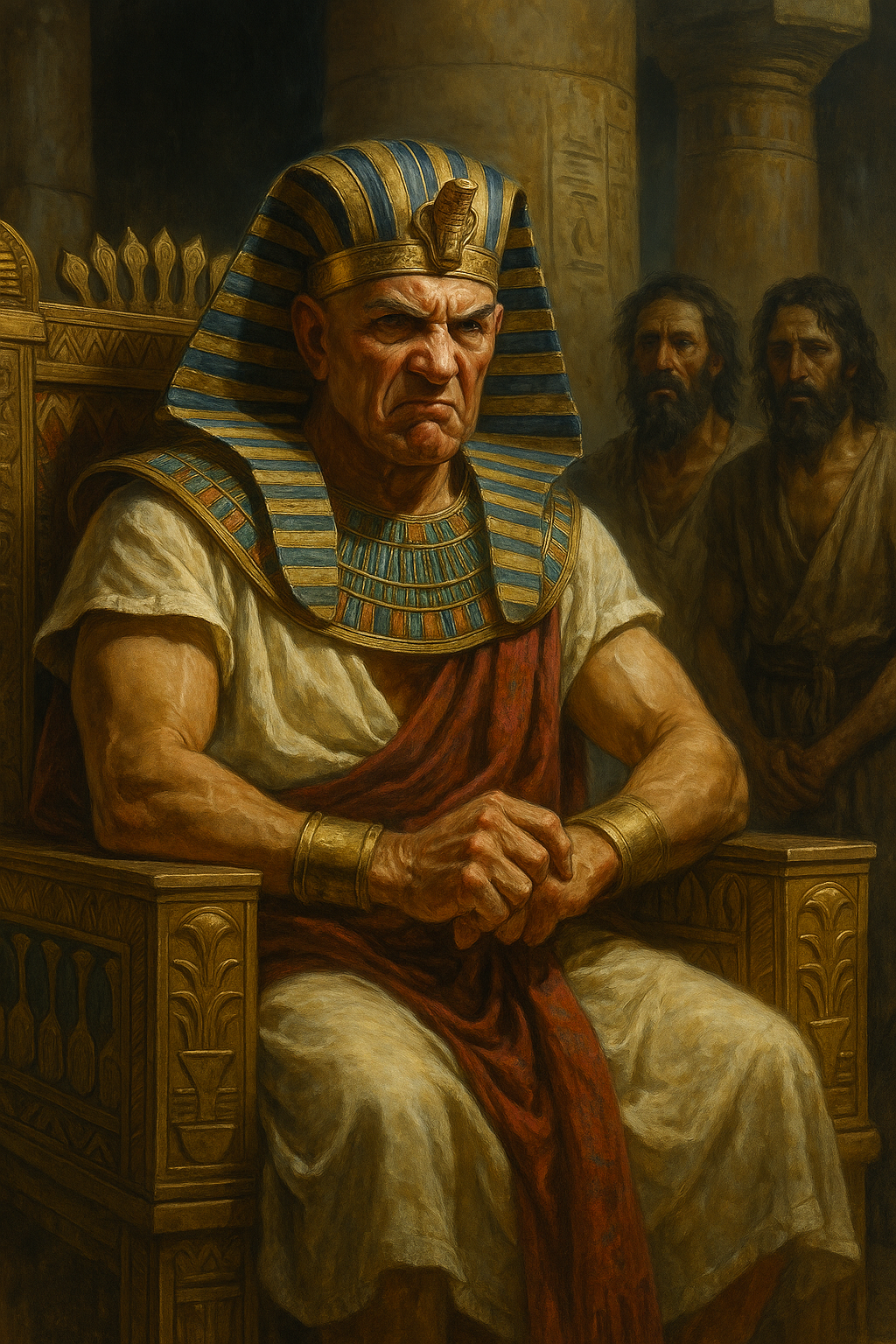
The Mystery of the Hardened Heart
Divine Purpose or Free Will?
Have you ever pondered the paradox of human choice versus divine decree? The mention in Exodus 7:3 of God hardening Pharaoh’s heart can stir a sense of unease. Does this mean Pharaoh had no choice in the matter? This question has piqued the curiosity of many believers throughout history, as it seems to challenge our understanding of free will.
Pharaoh’s heart hardening can be seen as a poignant narrative on the human condition—how sometimes, even in the face of evident truth or consequence, people cling steadfastly to their own ways. Perhaps this story encourages us to reflect on moments in our lives when we’ve felt similarly resistant to change, despite the signs urging us otherwise.
Tenacity in the Face of Conviction
Zooming out from the divine narrative for a moment, consider Pharaoh not as a villain but as a figure representing human stubbornness. Despite plagues and wonders, Pharaoh’s heart grows increasingly steely. You might feel a whisper of empathy or understanding here; we all know that relentless voice of stubbornness within us. The text invites you to introspect: When have your convictions rendered you immovable, for better or worse?
Unpacking the Layers: Cultural and Historical Context
Ancient Egypt and Power Dynamics
Imagine being in ancient Egypt—a land thriving with power, tradition, and deities aplenty. In this context, Pharaoh wasn’t just a king; he was a living god in the eyes of his people. This cultural backdrop enriches our understanding of why Pharaoh might resist yielding to an alien deity. His hardened heart serves as a barrier to protect not only his power but the entire foundation of Egyptian society and religion.
The Plagues as a Divine Showcase
The series of plagues in Exodus is not merely punishment but also serves as a divine showcase of power. Each plague systematically undermines and challenges the Egyptian gods and the Pharaoh’s authority. Yet, Pharaoh’s heart remains hardened. This provides a fascinating lens through which to view resilience—this isn’t merely a man refusing to give in, but a divine chess game that highlights the gods of Egypt’s impotence in the face of the God of Israel’s supremacy.
Reflecting Pharaoh’s Story in Our Own Lives
Our Hearts, Our Pharaohs
You might never sit upon a throne, dictating the lives of millions, but we’ve all experienced a hardened heart in some form. It might be during conflicts with loved ones, at work, or even within your spiritual journey. Consider Pharaoh as a mirror to our tendencies to resist what we know can lead to growth. How often have you stood firm on shaky ground, letting pride or fear steer your choices?
Transformation Through Self-Reflection
Pharaoh’s tale asks you to look inward. If you see a bit of Pharaoh in yourself, it might be time to ask some difficult questions. Are you resisting necessary change? What are you clinging to, and why? Approaching these questions can lead not just to personal transformation but to deeper spiritual understanding as well.
Conclusion
The story of Pharaoh’s hardened heart in Exodus 7 is as much about human nature as it is about divine will. It offers you a chance to examine your moments of stubbornness and reflect on the balance between divine orchestration and human agency. Just as Pharaoh’s heart was intricately tied to the fate of his people and his realm, your choices echo through your own life and the lives of those around you.
Embark on this journey of self-discovery and transformation, and consider how the tales of old guide your steps today.
🔍 Explore More Bible Insights:
✅ 1. The Role of Eliab – David’s Brother in His Journey to Facing Goliath
Tone: Relational, reflective, character-focused
🔹 “Family Tensions and God’s Purpose – Discover the Connection”
Read it here.»
✅ 2. What Jeremiah 29:11 Means for Us Today
Tone: Hopeful, encouraging, life application
🔹 “God’s Plans Still Stand – Find Your Hope Here”
Read it here.»
✅ 3. The Wise and Foolish Builders – A Strong Foundation in Faith (Matthew 7:24-27)
Tone: Foundational, practical, discipleship
🔹 “Build Your Life on the Rock – Keep Learning”
Read it here.»
✅ 4. The Roman Centurion at the Cross – A Moment of Revelation
Tone: Awe-inspiring, redemptive, gospel-centered
🔹 “From Witness to Believer – Read His Revelation”
Read it here.»
As a ClickBank Affiliate, I earn from qualifying purchases.
Acknowledgment: All Bible verses referenced in this article were accessed via Bible Gateway (or Bible Hub).
“Want to explore more? Check out our latest post on Why Jesus? and discover the life-changing truth of the Gospel!”




